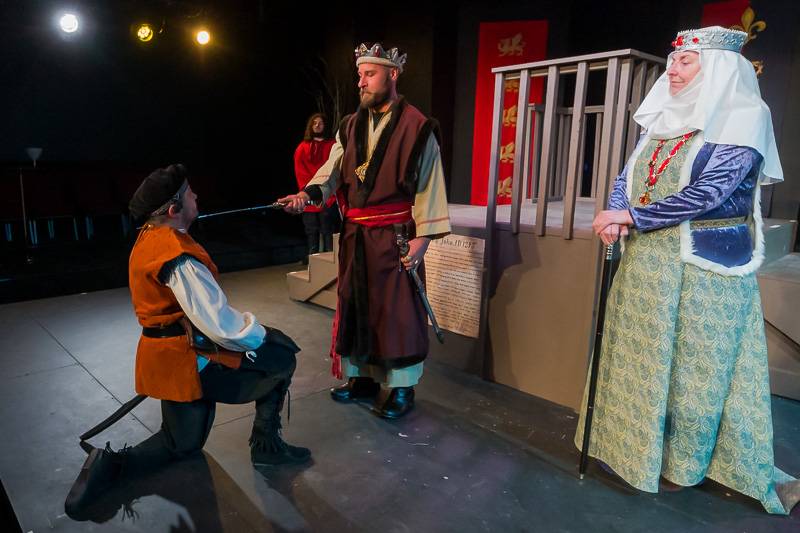
Photo by Howard Owens.
Audiences will have an opportunity to watch a French connection this weekend.
Not the one with big city narcotics detectives investigating a heroin smuggling ring, but rather, the royal Shakespearean drama of “King John,” about the difficulties of who the lead character was and that he usurped the throne, Director E. Jane Burk says.
“One of the other characters that is in this play, his name is Arthur, he is John's nephew, he was the son of John's older brother, Jeffrey, who died. John took the throne before Arthur could ascend to it; he actually usurped the throne from his nephew Arthur. So much of the play revolves around a French connection. That's why we have (on the banners at the back of the stage) English lions on one side, and we have French fleur-de-lis on the other side,” Burk said during rehearsal Tuesday. “There is a significant threat of war because the French segment, the French king, King Philip, wants to put John's nephew Arthur on the English throne. So it all revolves around the situation that it was very militaristic. You could almost say contemporary in terms of the different factions that were trying to come to power.”
Batavia Players will present Shakespeare in Springtime’s “King John” at 7:30 p.m. Friday and Saturday and 2 p.m. Sunday at Main St. 56 Theater in Batavia City Centre.
Playwright William Shakespeare penned a significant number of plays that were histories about notables such as Richard the Third and Henry the Eighth, and this lesser known figure, King John, Burk said.
“It is not frequently performed anywhere,” she said. “And it’s interesting because, actually, this particular play is all in verse. It’s all poetry; it’s not prose, it’s not normal, conversation-type stuff.”
A passage from King John’s character states:
O cousin, thou art come to set mine eye.
The tackle of my heart is cracked and burnt,
And all the shrouds wherewith my life should sail
Are turnèd to one thread, one little hair.
My heart hath one poor string to stay it by,
Which holds but till thy news be utterèd,
And then all this thou seest is but a clod
And module of confounded royalty.
The time period is 1216, and the play is paying homage to the Magna Carta, which King John signed in 1215, a year before his death at 49, Burk said. The cast quickly became familiar with the setting, the lines and the demands of such a production, and has fulfilled its responsibilities with aplomb, she said.
Auditions were in mid-January, everyone received their scripts and immediately began to learn their lines after being cast for roles, and, because another show was happening during a portion of February, rehearsals didn’t even begin until later in the month.
“And this is only March 19. And kudos to the cast. I give them so much credit. They have done an extraordinary job of creating this place that is not Western New York. That is not Batavia. That does not sound anything like the way we speak. I have French people that are speaking with French accents,” she said. “We have worked hard on this. They have learned their lines, their scripts, word for word. If you were to sit right now — I'm not exaggerating — if you were to sit and actually listen to what they are saying, watching but listening, and reading the script as you're going along, you will see that it’s word for word. It is extraordinary. That's exceptionally difficult. You cannot take away from the fact that they have given heart and soul to making this happen.”
And who are “they?” By all other accounts, they are ordinary people, volunteers in the world of community theater with a passion for the arts, people who have jobs, work for a living, tend to families, she said, and dedicate many hours to memorizing their lines and create the character they will eventually bring to life up on stage.
The premise of “King John” is that he goes to war against the French after claiming that his nephew should be king instead. John has conflict with the church, orders his nephew's death, and turns the nobles against himself. In the end, John dies after a monk poisons him, the French retreat and his own son becomes king.
Burk isn’t necessarily looking to convert the masses onto Shakespeare; however, she’s hoping that folks are willing to give it a try.
“My idea is that, on some level, most of the people that will come to see the show probably have not had any sort of prior experience with Shakespeare,” she said. “But what we hope is that if we can make a difference in the life of one person if we can make the lightbulbs click on for one person, and they understand and discover what Shakespeare is all about, then we’ve succeeded. That’s what it’s all about.”
Tickets are $22 adults, $20 students and seniors online and $24 adults, $22 students and seniors for cash at the door.
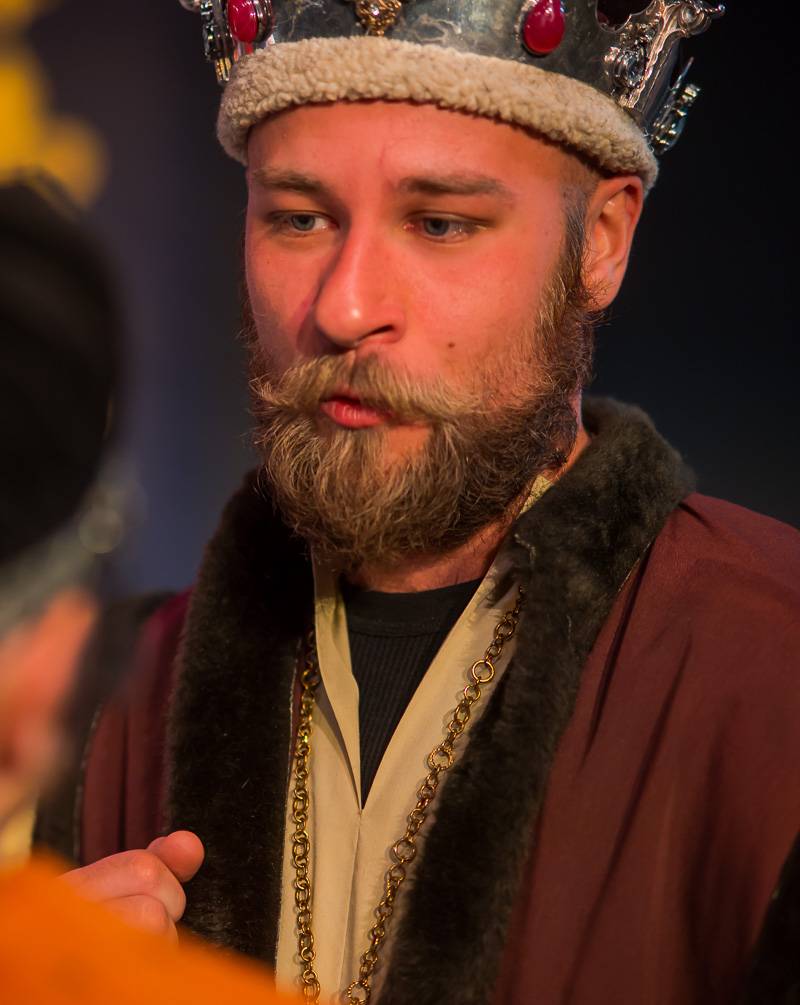
Photo by Howard Owens.

Photo by Howard Owens

Photo by Howard Owens
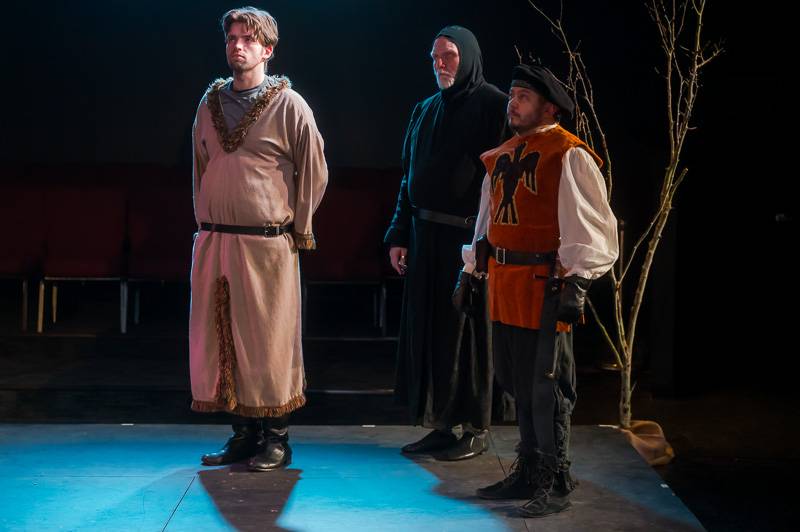
Photo by Howard Owens.
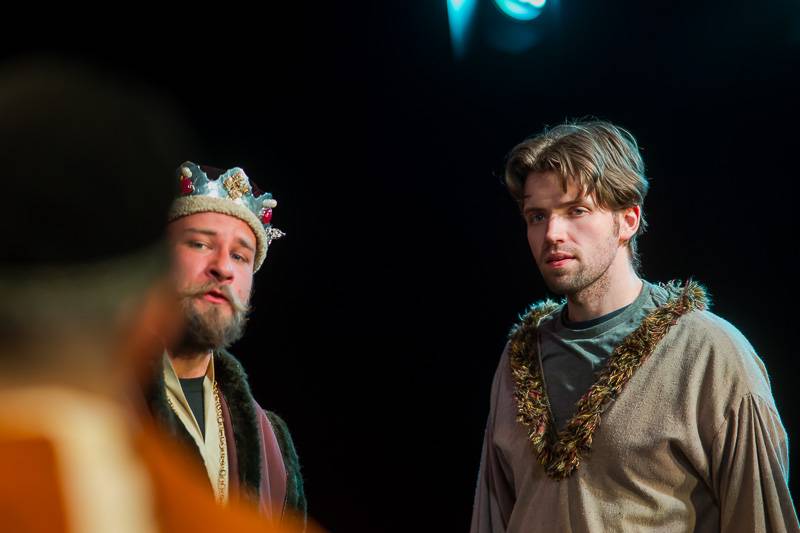
Photo by Howard Owens
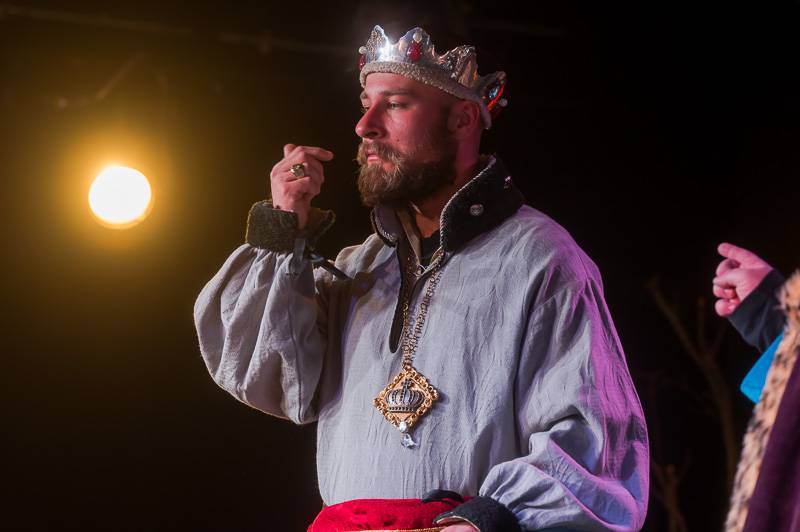
Photo by Howard Owens
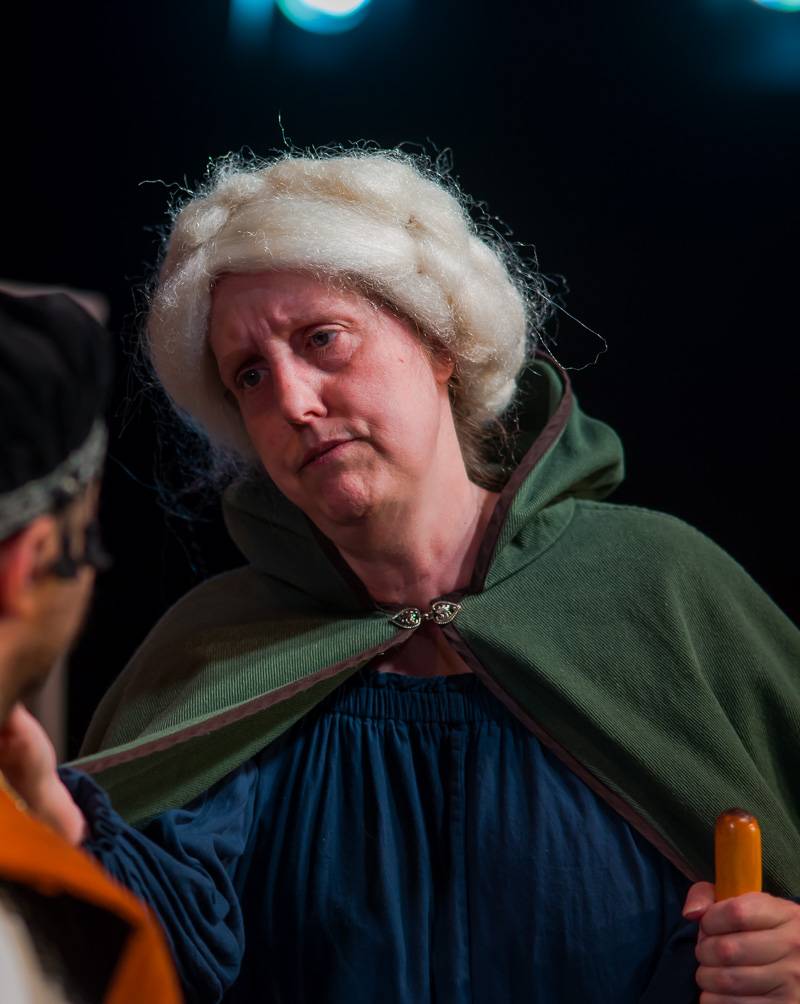
Photo by Howard Owens
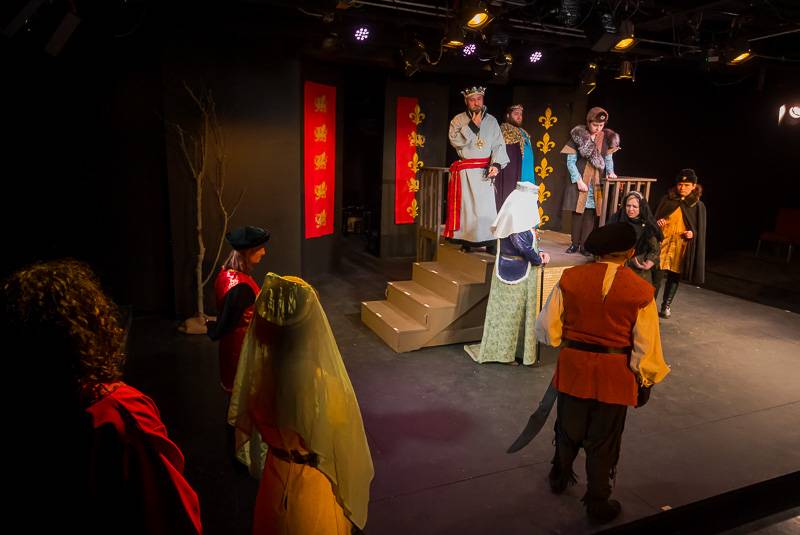
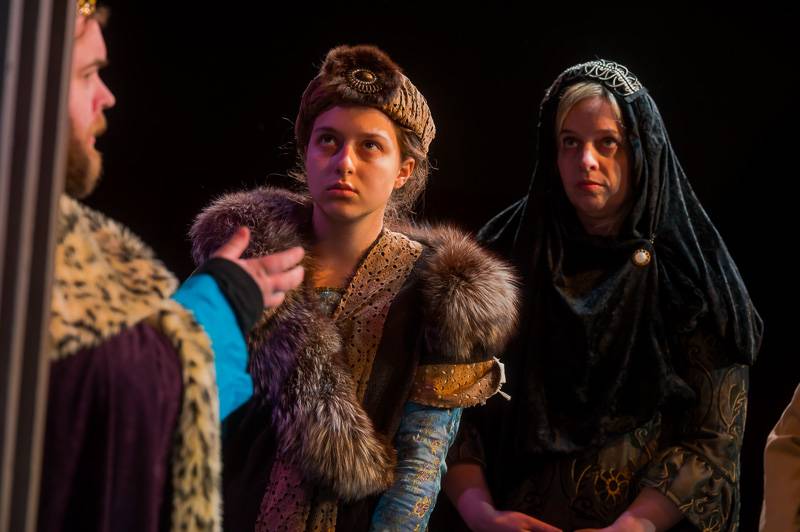
Photo by Howard Owens.
